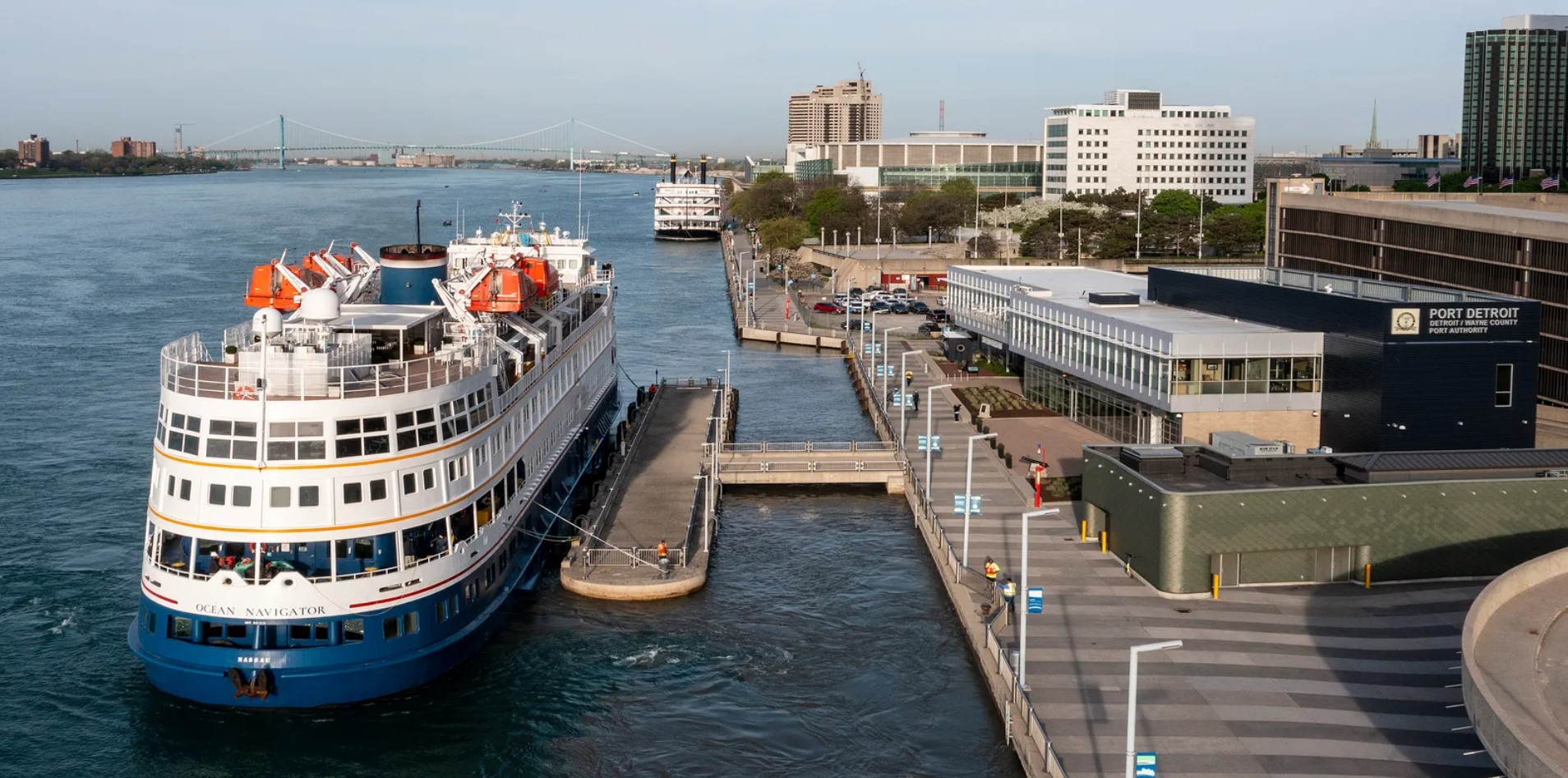
Green Ports, Cleaner Air: The Port of Detroit Targets Net Zero by 2040
May 30, 2025
The Detroit/Wayne County Port Authority (DWCPA) recently shared their efforts to decarbonize Michigan’s largest inland port and improve air quality in a webinar hosted by MiSBF.
The session covered the role ports play in addressing climate change, specific emissions-reducing initiatives, and how the logistics industry in the region can contribute to achieving the goal of net-zero carbon emissions by 2040.
The Port of Detroit: Supporting Economic Growth in Michigan
The Detroit Port Authority acts as an economic development organization, coordinating and promoting the activities in the 18 private port facilities along 32 miles of the Detroit and Rouge Rivers.
“We really promote the usage of the waterways because it remains the greenest mode of transportation—reducing energy consumption, emissions, accidents, spills, and other things,” said Mark Schrupp, Executive Director at DWCPA.
As the largest cargo terminal in Michigan, the port handles over eight million tons of cargo per year, mainly steel, iron ore, and cement, supporting over 6,000 jobs and nearly $1 billion in economic activity.
The Port of Detroit is an international logistics hub: in 2023 alone, Detroit welcomed over 1.5 million trucks from Canada, handling 28.3% of the total volume of freight entering from the northern border.
While travel through waterways is considered a more sustainable form of transporting goods compared to trucking and rail, maritime travel still accounts for three percent of global emissions. Southwest Detroit also faces some of the worst air pollution in the country, contributing to high rates of asthma, cancer, and respiratory illness.
Inspired by the International Maritime Organization’s action plan to decrease greenhouse gas emissions to net zero, the Port of Detroit embarked on a journey to establish a baseline emissions measurement and create a plan to decarbonize by 2040.
An Exercise in Sustainability Collaboration
While the port authority is responsible for coordinating and promoting port activity, it doesn’t have legal authority to mandate data collection or decarbonization for private port facilities. Any sustainability initiative is an exercise in relationship building and collaboration.
“This is a huge partnership,” said Taylor Mitchell, Sustainability Manager at DWCPA, “getting the terminals to [gather] data on the movement of goods…the shipping, the trucking, and the goods and handling equipment. This was no small feat.”
The Port Authority turned to Tunley Environmental to assess and quantify carbon emissions and found that the port emits 30,269 tCO2e annually, enough to fill up Ford Field nearly 44 times.
To engage community partners, the DWCPA worked with the Southwest Detroit Environmental Vision to present their findings and create an open dialogue with residents of the surrounding neighborhoods.
The Action Plan
The plan to decarbonize the Port of Detroit has three main areas:
- Introducing alternative fuels with incremental goals toward switching all shipping vessels and trucks to biodiesel.
- Electrification of goods handling equipment, including forklifts, railcar movers, gantry cranes, and electric patrol boats.
- Research into a floating power barge and applications of hydrogen fuel in port operations.
The plan also formed a Low Carbon Port Committee and a Community Advisory Board to continue collaboration with private terminal operators, community stakeholders, and track progress toward the net zero goal quarterly.
Read the Port Authority’s full Decarbonization and Air Quality Improvement Plan here.
We would like to thank our presenters for taking the time to make this information available to the sustainability community in Michigan:
- Mark Schrupp, Executive Director, Detroit/Wayne County Port Authority
- Taylor Mitchell, Sustainability Manager, Detroit/Wayne County Port Authority
For more detail, watch the event recording here on YouTube.
>> Check out more upcoming events highlighting sustainability issues and initiatives in Michigan.
